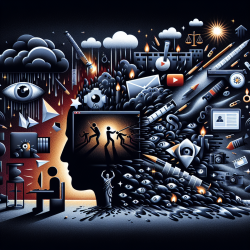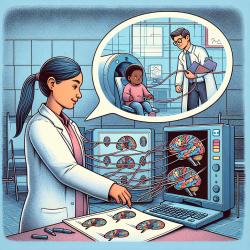Introduction
The field of psychiatry stands at a crossroads, grappling with its identity as both a medical specialty and a science. The article "Is Psychiatry Scientific? A Letter to a 21st Century Psychiatry Resident" by Jose de Leon (2013) delves into the complexities of defining psychiatry within the scientific realm. This blog aims to distill key insights from the research and encourage practitioners to refine their skills and pursue further exploration.
The Dual Nature of Psychiatry
Psychiatry is uniquely positioned as a hybrid discipline, requiring both scientific explanation and social understanding. The historical development of psychiatric language, primarily influenced by 19th-century French and German psychopathology, underscores the need for a new linguistic framework that integrates 21st-century scientific advancements.
Challenges in Psychiatric Research
The current state of psychiatric research is fraught with methodological challenges. The reliance on outdated language and diagnostic systems, such as the DSM-5, limits the field's ability to incorporate cutting-edge neuroscience findings. The article suggests that East Asian psychiatry residents, less tethered to historical language, may lead the charge in developing a new psychiatric lexicon.
Embracing Hybrid Methodologies
To advance psychiatry, practitioners must embrace its hybrid nature. This involves recognizing the limitations of traditional scientific methods when applied to psychiatric disorders. For instance, while brain imaging is valuable for neurological disorders, it may not be applicable to conditions rooted in human interaction and communication.
Data-Driven Decisions and Evidence-Based Practice
Despite the challenges, evidence-based medicine (EBM) remains a cornerstone of psychiatric practice. However, practitioners must critically evaluate the limitations of EBM, particularly in psychiatry, where the evidence base is often insufficient. The integration of personalized medicine approaches can enhance treatment outcomes by tailoring interventions to individual patient needs.
Conclusion: A Call to Action
As the field of psychiatry continues to evolve, practitioners are encouraged to engage with the complexities of their discipline. By embracing hybrid methodologies and developing a new language framework, psychiatry can better serve its patients and advance as a scientific discipline. For those interested in further exploring these ideas, the original research paper offers a comprehensive analysis of the issues at hand.
To read the original research paper, please follow this link: Is Psychiatry Scientific? A Letter to a 21st Century Psychiatry Resident.










